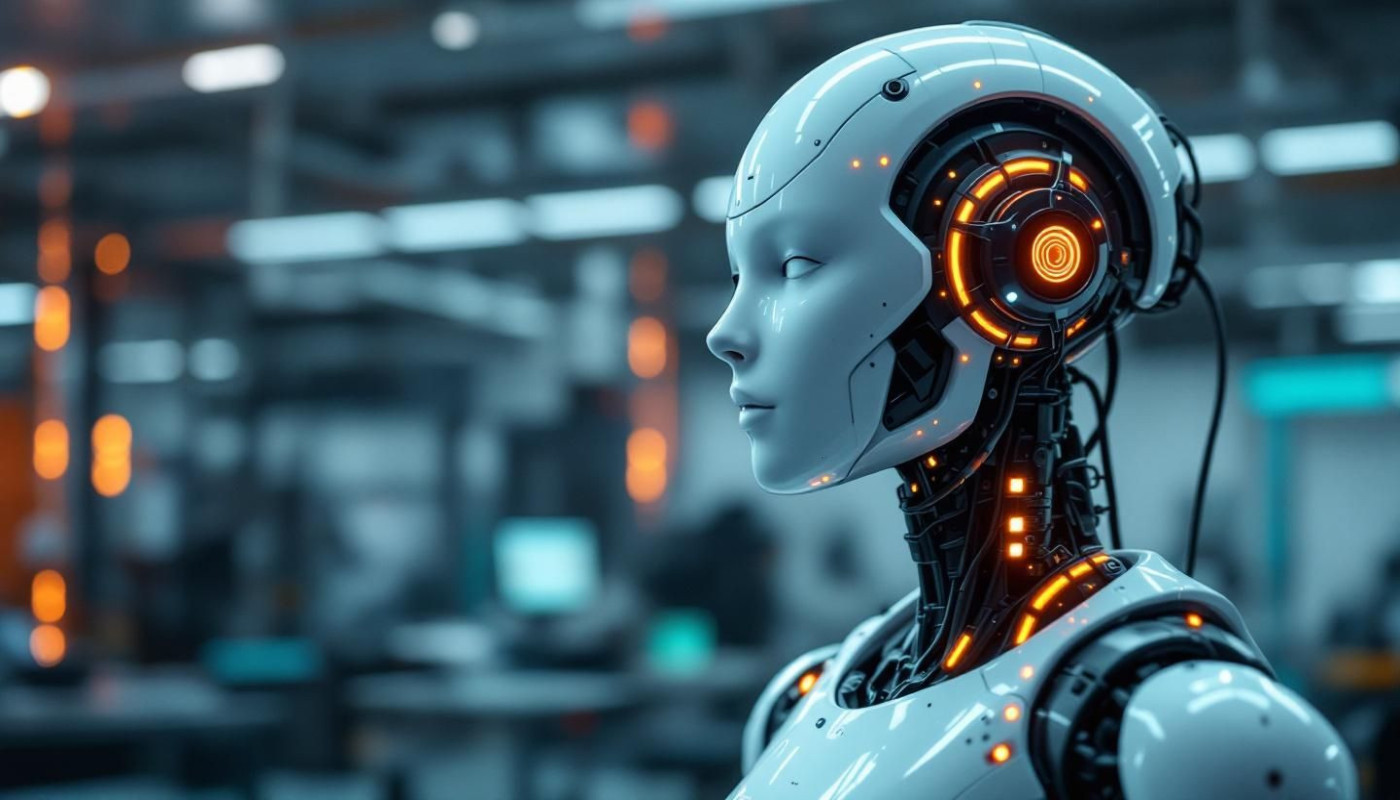Table of contents
The ever-evolving landscape of healthcare has been profoundly influenced by the advent of artificial intelligence. This powerful technology is reshaping the way professionals approach disease prediction, patient care, and treatment outcomes. Unpacking the role of artificial intelligence in predictive healthcare reveals a promising future where technology and medicine converge to enhance the longevity and quality of life. Dive into the exploration of how predictive analytics, machine learning, and data-driven decisions are revolutionizing healthcare practices.
The Emergence of Predictive Analytics in Healthcare
Predictive analytics in healthcare represents a transformative approach to medicine, harnessing the power of artificial intelligence to sift through expansive collections of healthcare data. This method utilizes AI algorithms to detect patterns and anomalies within Big Data, enabling the anticipation of future health events. By forecasting potential outcomes, AI in healthcare provides valuable insights that aid in early intervention and tailor treatment plans to individual patient needs. This shift from a traditional, reactive healthcare model to one that is proactive underscores a significant change in how medical professionals approach disease prevention and management. Predictive analytics, by predicting patient risks and outcomes, plays a pivotal role in this proactive paradigm, focusing on prevention rather than just treatment. The integration of predictive analytics into clinical practice marks an evolution toward more informed, data-driven decision-making, ultimately striving to improve patient care and reduce healthcare costs.
Machine Learning's Impact on Diagnosis and Prognosis
Machine learning algorithms have revolutionized the field of medical diagnosis, offering unprecedented accuracy and efficiency in analyzing patient health data. These algorithms, including advanced neural networks, excel at identifying complex patterns and anomalies that may elude traditional diagnostic methods. Particularly in the analysis of medical imaging, machine learning techniques have demonstrated their ability to detect subtle changes and indicators that can signify the early stages of disease. This capability not only enhances the precision of diagnoses but also contributes significantly to predicting patient prognoses. By leveraging vast datasets, machine learning models can forecast the likely progression of a condition, enabling healthcare professionals to tailor treatment plans more effectively and improve patient outcomes.
In the context of health prognoses, AI efficiency is evident as it delivers rapid risk assessments, which are indispensable for acute medical scenarios where time is of the essence. To further explore the nuances and future potential of machine learning in healthcare, insights from an AI research scientist with expertise in medical applications would be invaluable. Their specialized knowledge in the development and deployment of these algorithms could shed light on how machine learning will continue to refine both the accuracy of diagnostics and the predictive power of health prognoses.
Data-Driven Decisions in Personalized Medicine
The advent of personalized medicine has revolutionized the way healthcare providers approach treatment plans. Central to this innovation is the reliance on data-driven decisions, which harness the power of patient-specific data to create highly customized care protocols. Artificial Intelligence (AI) takes center stage in analyzing vast arrays of patient data, including genomics, to pinpoint the most effective treatment strategies. By integrating AI in healthcare, practitioners can identify patterns and predict health outcomes with greater precision, potentially enhancing patient outcomes significantly.
Personalized medicine's attention to the individual's unique medical profile not only promises to improve the quality of care but also to reduce unnecessary healthcare costs. It offers a proactive rather than reactive approach to medicine, possibly leading to early intervention and more efficient use of resources. As such, AI's role in processing and applying patient data is pivotal to the success of personalized treatment plans.
In recognition of AI's transformative potential in this field, inviting a clinical informaticist to share their expertise would be invaluable. Such experts are at the forefront of merging healthcare data with patient care, ensuring that the insights derived from AI are effectively translated into clinical practice. Their commentary would provide a nuanced understanding of how data-driven decisions in personalized medicine are shaping the future of healthcare, ultimately striving for a system that prioritizes patient outcomes and cost-effectiveness.
Challenges and Ethical Considerations of AI in Healthcare
The advancement of artificial intelligence (AI) in healthcare has the potential to revolutionize the medical field, offering predictive insights that could lead to early disease detection and personalized treatment plans. Nevertheless, the integration of AI systems into healthcare raises significant challenges and ethical concerns. One of the foremost issues is data privacy, requiring stringent measures to protect sensitive patient information from unauthorized access and potential breaches. Additionally, algorithmic bias presents a considerable hurdle, as decision-making algorithms might inadvertently perpetuate existing disparities in healthcare if they are trained on biased data sets.
Furthermore, there is an imperative need for transparent AI systems. Stakeholders, including patients and healthcare providers, must understand how AI tools arrive at conclusions to trust and effectively utilize these technologies. As a consequence, it is pivotal to establish robust ethical frameworks and guidelines that ensure AI is developed and implemented in a way that aligns with societal values and standards of care. In light of these complexities, it is advantageous to solicit the contribution of an ethicist specializing in technology and healthcare. Such an expert can provide in-depth analysis and guidance on navigating the moral landscape of AI in healthcare, particularly concerning the still-theoretical realm of Artificial General Intelligence and its ramifications for the industry.
The Future Directions of AI in Healthcare
The trajectory of AI in the healthcare sector is poised for remarkable progress, with numerous advancements and integrations on the horizon. The fusion of AI with the Internet of Medical Things (IoMT) stands as one of the most anticipated developments. Such an amalgamation promises to enhance predictive health monitoring, allowing for real-time data collection and analysis from a myriad of medical devices. This integration will enable healthcare providers to identify potential health issues before they escalate into serious conditions, fostering a more proactive approach to patient care.
As the future of AI healthcare unfolds, continuous innovation becomes the driving force behind significant enhancements in healthcare delivery. AI's capability to process and interpret vast amounts of data rapidly paves the way for Precision Medicine, an emerging approach to disease treatment and prevention that takes into account individual variability in genes, environment, and lifestyle. Precision Medicine's reliance on AI could revolutionize treatment plans, making them more effective and personalized than ever before.
Anticipating the next chapter in AI for healthcare, one could expect AI advancements that enable even more sophisticated predictive health monitoring. This forward-looking technology could identify disease patterns and predict outbreaks, potentially mitigating health crises before they occur. Moreover, IoMT integration is likely to expand, with smarter devices and sensors that communicate seamlessly, creating a more interconnected and efficient healthcare system.
Furthermore, the healthcare innovation landscape will be shaped by AI's ability to learn and adapt over time, improving diagnostic accuracy and treatment efficacy. With a futurist's eye, one can envision a healthcare ecosystem where AI supports decision-making at every level, from administrative tasks to complex clinical judgments, transforming the very nature of care and treatment as we know it. Thus, the continued exploration and investment in AI advancements stands as a pivotal endeavor for the future wellbeing of society.
On the same subject

How AI Tools Enhance Email Marketing Strategies?

How Does AI Revolutionize Influencer Marketing For Modern Businesses?

Legal Considerations In Play-to-earn Gaming Environments

Exploring The Ethical Implications Of Advanced Conversational Models

How Optimizing Old Content Can Rejuvenate Your Digital Presence

Exploring The Benefits Of Free AI-driven Chat Platforms For Businesses

What are the benefits of using BOTNATION AI in the field of chatbots ?

